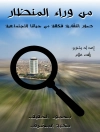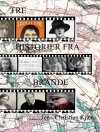In ‘The Central Eskimo, ‘ Franz Boas presents a meticulous ethnographic study that delves into the intricate cultural practices, social structures, and subsistence methods of the Central Eskimo peoples. Employing an observational and descriptive literary style, Boas intertwines rich narrative detail with rigorous academic analysis, thereby contextualizing the Eskimo’s way of life within broader anthropological discourse. This work stands as a pivotal text in American anthropology, reflecting late 19th-century perspectives while pioneering modern ethnographic methods that emphasize fieldwork and cultural relativism. Franz Boas, often regarded as the ‘father of American anthropology, ‘ was profoundly influenced by his belief in cultural relativism and an empirical approach to study diverse human societies. His extensive background in geography and natural sciences expedited his rich understanding of environmental influences on culture. As an early advocate against racial determinism, Boas sought to challenge prevailing stereotypes of indigenous peoples through comprehensive field studies, which found their zenith in ‘The Central Eskimo.’ This seminal work is highly recommended for readers interested in anthropology, cultural studies, or Arctic history. It not only serves as a vital resource for understanding the Eskimo way of life but also exemplifies the critical evolution of anthropological thought in the early 20th century. Boas’s persistent pursuit of accuracy and sensitivity towards the subjects of his study make this book an essential read for scholars and enthusiasts alike.
Over de auteur
Franz Boas (1858–1942) was a giant in the field of anthropology and one of the most prominent scientists to shape the discipline into a rigorously practiced social science. Born and educated in Germany, where he earned a doctorate in physics, Boas’s intellectual pursuits swiftly moved toward the study of cultures. He is often termed the ‘Father of American Anthropology’ for his significant contributions to the field, particularly in cultural relativism and scientific methodology. Boas emphasized the importance of collecting ethnographic data and was a staunch opponent to the prevailing notions of social Darwinism and scientific racism of his time. His work laid the foundation for rejecting broad racial categorizations of humanity and instead argued for the examination of individual cultures on their own terms. One of his notable publications, ‘The Central Eskimo’ (1888), is a seminal work encapsulating detailed observations of Inuit societies in the North American Arctic. This text is a clear reflection of Boas’s dedication to immersive fieldwork and his methodological emphasis on participant observation as a technique to truly understand cultural practices and beliefs. The work continues to be referenced in discussions on ethnohistorical methodologies and the anthropology of circumpolar societies. Throughout his career, Boas also took active roles in academia, primarily teaching at Columbia University, where he influenced a generation of anthropologists with his progressive views on culture and humanity. His literary style is notable for its meticulous detail and its holistic approach to the study of human societies, qualities that have cemented his legacy in the annals of anthropological scholarship.












